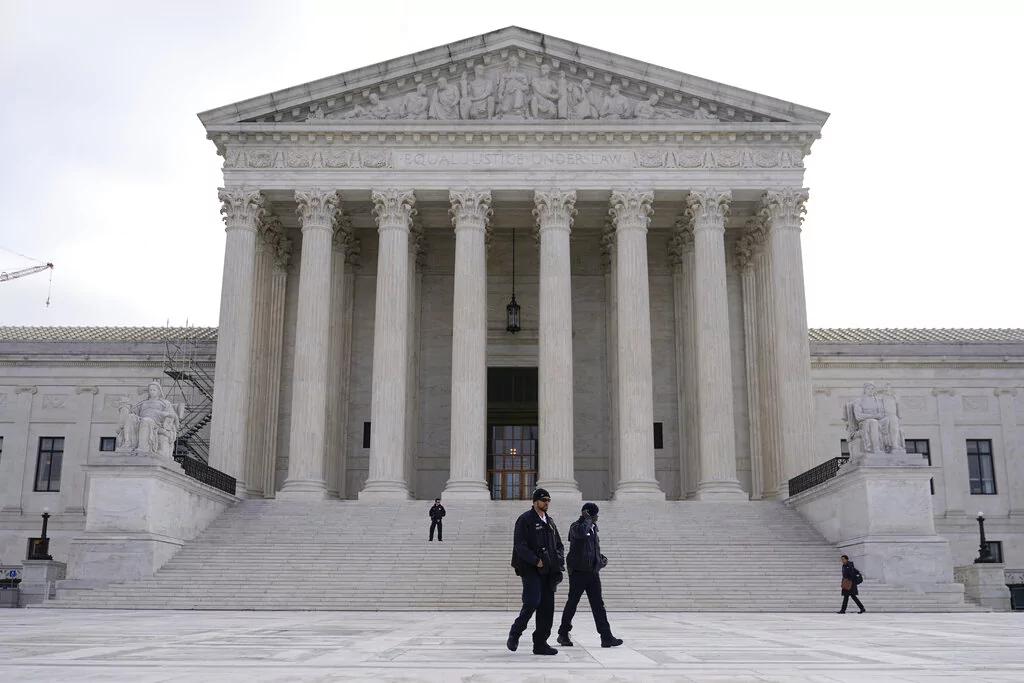

The Supreme Court agreed on Monday to take on two disputes surrounding the Environmental Protection Agency that could serve as a boon to state and industry groups seeking to avoid certain regulatory oversight.
The first dispute involves a challenge brought by companies and Oklahoma seeking to determine whether challenges over the so-called “good neighbor” ozone plans can be decided in a venue other than the U.S. Court of Appeals for the District of Columbia Circuit, which has a track record of upholding policies under the Biden administration and is stacked with Democratic judges.
In March, the Colorado-based U.S. Court of Appeals for the 10th Circuit told Oklahoma, PacifiCorp, and other challengers that their lawsuits against the EPA’s traveling ozone plan belong at the D.C. Circuit, not under a more regional appeals court where the challengers may have an advantage in getting the rule paused.
The case comes as a growing number of states and industry groups have sought relief in regulatory disputes at venues outside of the D.C. Circuit in hopes of finding a venue more favorable to their requests.
For example, the Louisiana-based U.S. Court of Appeals for the 5th Circuit, considered to be one of the most conservative and skeptical of regulatory overreach, decided on March 22 to make it much more difficult to prevent a Texas-based plastic company from using fluorination to reinforce plastic packaging, which the agency says contributes to producing “forever chemicals” and harms the environment.
The justices will hear Oklahoma and PacifiCorp v. EPA in a consolidated argument hearing later this term.
The other dispute granted by the justices on Monday, EPA v. Calumet Shreveport Refining, LLC, surrounds the agency’s denial of biofuel waivers for small refineries that requested to be exempt from the Renewable Fuel Standard program’s responsibilities under the Clean Air Act.
Calumet presents a similar question to the justices: whether the venue for challenges by small oil refineries seeking such exemptions lies exclusively with the D.C.-based appeals court because they are nationwide in scope, or if other federal appeals courts can decide these types of challenges.
The Supreme Court in recent years has cast a more skeptical eye on the administrative and regulatory state, with moves such as a 6-3 ruling against the EPA in 2022 on the extent that it can regulate carbon dioxide emissions on the basis of preventing climate change.
CLICK HERE TO READ MORE FROM THE WASHINGTON EXAMINER
This past term, the justices ruled 5-4 to pause the EPA’s good neighbor rule, which sought to strictly limit ozone pollution from power plants and other industrial sources in 23 states, as well as air pollutants that can drift downwind to other states and cause additional harm.
The Supreme Court’s orders list on Monday noted that Justice Samuel Alito did not participate in considering the petitions related to the “good neighbor” ozone rule.





